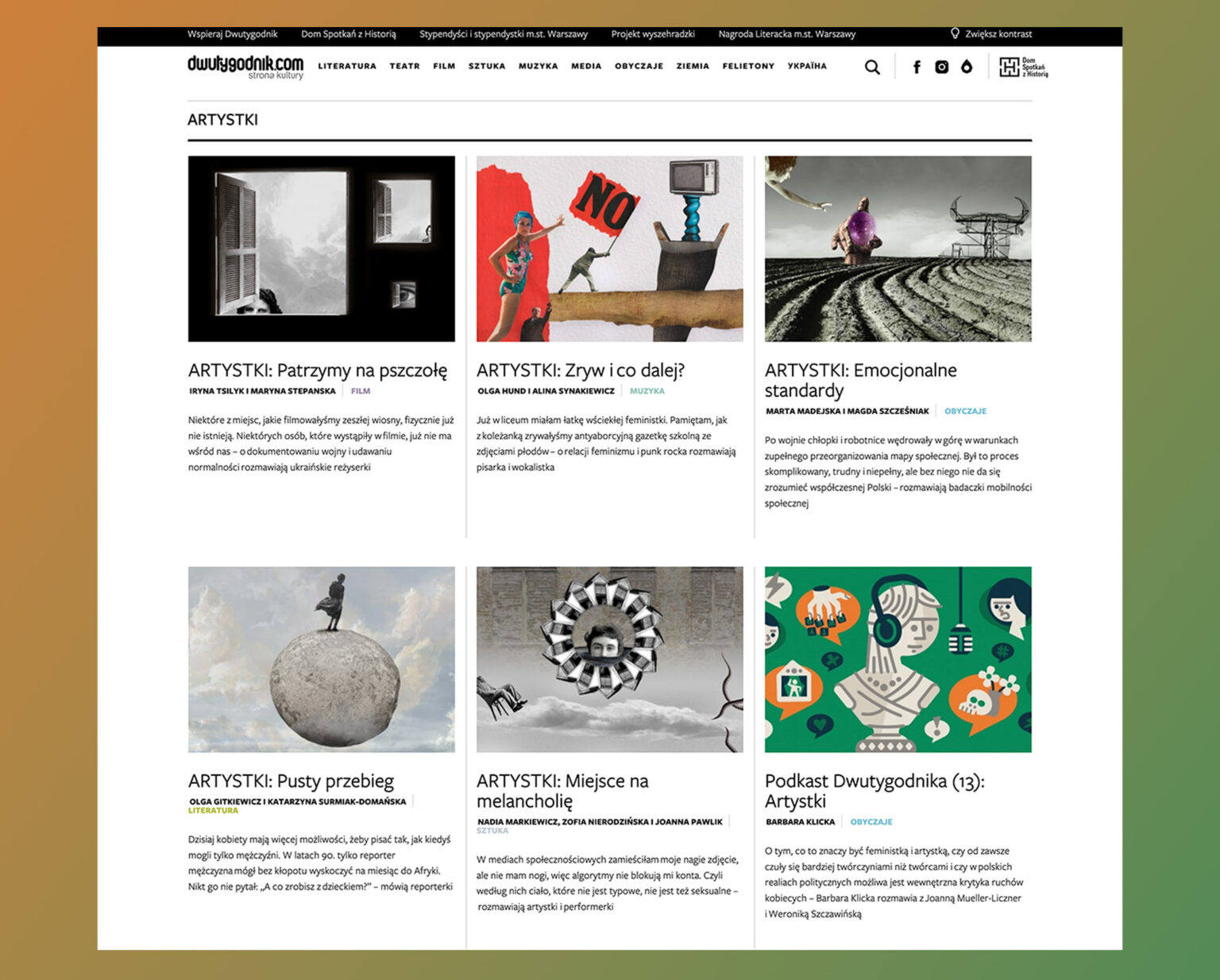The run-up to Poland’s hard-fought elections on October 15 noticed a wave of anti-immigrant tales in pro-government media, with ideas that non-white newcomers are a part of a “particular operation” orchestrated by Russia. Migrants from Africa and the Center East, overtly inspired by Belarusian leaders to enter the EU by means of the forest bordering Poland and Belarus, have been pushed again by Polish border guards and wandered into the exclusion zone for weeks, searching dodged with canine. batons. The variety of deaths shouldn’t be documented.
The brand new movie by Agnieszka Holland Inexperienced border (‘Inexperienced Border’) expresses its outrage at Poland’s heavy-handed and sometimes brutal remedy of overland migrants. The movie was denounced by PiS ministers when it premiered on the Venice Movie Pageant in September. Comparisons had been made with anti-Polish Nazi propaganda. To write down Biweekly (no. 369), Iwona Kurz condemns the federal government’s assault as
a basic violation of freedom of speech, creative expression and the fundamental rights of public debate. The assaults reveal the pathological progress within the Polish creativeness of the narcissistic delusion of ‘purity’ and a fixation on the picture of a pristine Polish army uniform. It’s a rare combine. By citing associations with the Nazi occupation, the authorities fully reverse the state of affairs. They assist an perspective aimed toward turning Poland right into a historic reconstruction camp, an unlimited simulation, a projection of some type of mythological purity that washes away all of the filth from a rustic dominated by carrot and stick.
However regardless of the movie’s daring topicality, its strong protection of the precise to depart your personal nation to reside in one other, and its implicit criticism of Poland’s liberal center class (‘for whom serving to folks affected by wandering by means of the forest is ‘an excessive amount of’), the Dutch emphasis on migrant households struggling and dying within the Białowieża forest reduces the underexposed social downside of poverty and deprivation within the border area.
“The truth that the movie depends so closely on the worldwide middle-class group appears problematic to me,” Kurz writes. ‘Migrants look like ‘folks like us’: well-educated, multilingual and comparatively rich. They purchased airplane tickets, paid intermediaries and cash for the journey. However the native inhabitants of Podlasie is nearly absent. Their views seem within the type of quick fragments and the expertise of dwelling and dying for a very long time within the forest space fades into the background.’
Stasis and nostalgia
In a dialogue in regards to the pitfalls of filmmaking in occasions of worldwide tensions and conflict (no. 370), Ukrainian movie director Iryna Tsilyk notes: “In an period of post-truth, even the only picture can appear to mirror a actuality constructed for the advantage of a selected facet or group.”
Her interlocutor, Ukrainian filmmaker Maryna Stepanska, notes that in circumstances the place folks and locations disappear in a single day, the constraints of cinema are extra obvious. “As a medium, movie is sluggish,” says Stepanska. ‘It’s not actually appropriate to convey and rework the right here and now, particularly not when the occasions are so excessive. Information reporting from the sector is one other matter, however artistic cinematography requires distance to challenge a imaginative and prescient by juxtaposing fragments of various realities.’
The conflict with Russia has created a brief rift, a limbo, through which all concepts in regards to the previous and the longer term fail. “The sense of a future is so rooted up to now that all the pieces appears to have been remodeled into recurring nostalgia,” Stepanska notes. ‘It appears to me that the one imaginative and prescient of the longer term we’re able to in the intervening time is precisely that: an infinite recycling of eager for what has been. We can’t think about a future. Conceptually it would not exist. There may be solely the right here and now.’
Get increased
Author Marta Madejska and cultural historian Magda Szcześniak focus on experiences with social mobility and the seek for a greater life in Poland since World Battle II. The nation as it’s right this moment was largely constructed by folks from impoverished agricultural communities who migrated from rural areas to cities, initially underneath state socialism and later within the Nineteen Nineties. Madejska and Szcześniak define the emotional affect of rural-to-urban migration and the disintegration of conventional agricultural networks and communities.
Newcomers to cities confronted abuse and sophistication prejudice at work, on the streets, and of their new households. They needed to discover methods of behaving that had been thought of acceptable, be taught an unfamiliar, extra muted language to specific their emotions, and sometimes suppress what they knew. However additionally they skilled an actual sense of liberation from mounted patriarchal constructions.
“Aside from job alternatives and the possibility to accumulate skilled {qualifications}, girls’s tales level to emancipation of their personal lives, the renegotiation of emotional relationships and the demand for a extra equitable division of labor at residence,” says Szcześniak. ‘Nonetheless, makes an attempt to affix the intelligentsia led to acute ache and psychological stress. Sources present how the intelligentsia fought for hegemony all through your entire existence of the Folks’s Republic of Poland.’
Though the Polish intelligentsia underneath communism retained its monopoly on publications, manners, style and applicable language, concepts selling social equality and justice had been very extensively supported. ‘The diaries of upwardly cellular folks present a robust perception that leveling class variations was essential and ought to be applied. They actually believed this. At this time, the egalitarian language of socialism is derided as a hypocritical smokescreen. However my analysis has proven that the concept of social equality was internalized by many, taken significantly and, to some extent, lived out on an unprecedented scale.”

